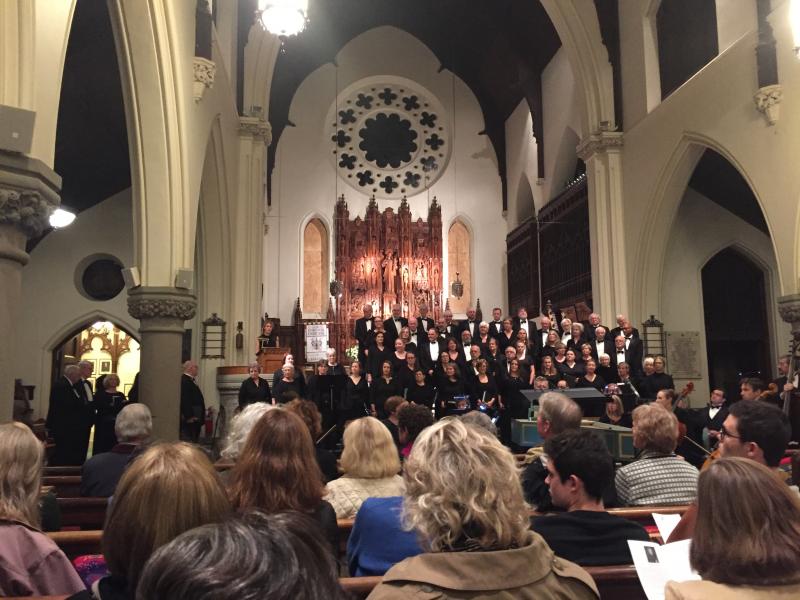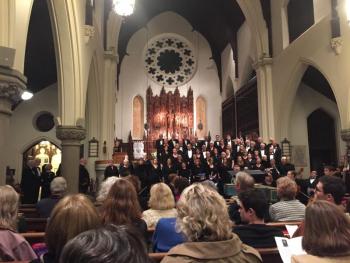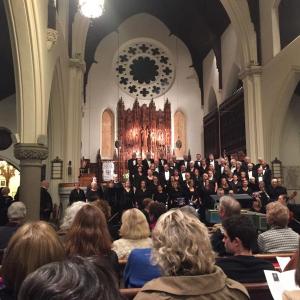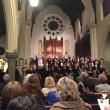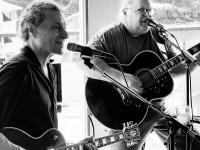Handel’s Messiah by the Oratorio Chorale
It’s that time of year again, and that perennial favorite, Handel’s “Messiah,” or pieces of it, are part of everyone’s holiday schedule.
Until this year, however, it hasn’t been part of the Oratorio Chorale’s. “I have a deep, dark secret,” confessed Emily Isaacson, artistic director and conductor of the Chorale and the orchestra that plays with it. “I hated the Messiah. I really tried to like it and appreciate it, all through college, but it seemed trite and repetitive. I just couldn’t. It wasn’t Bach.” She said so many of her professors and other musicians she respected loved the piece so much, she decided she needed to see it in a new light, and this year, she placed it on the program for the 2017-18 schedule.
On Nov. 4, the Chorale produced its “Messiah” at St. Luke’s in Portland, and again Nov. 5 at St. John’s in Brunswick.
It wasn’t like the thousand or so versions of the “Messiah” this reviewer has ever heard over the course of her life. It was more like ... Bach.
“Messiah” is a three-part oratorio, consisting of Old Testament Prophesy (part one), the Passion (part two) in which depraved humanity forsakes its savior in his hour of need but is ultimately reconciled with God, and what is sometimes referred to as the Life in Christ (part three), in which the mysteries of everlasting life are revealed.
Except for the Hallelujah Chorus, which culminates Part II, most of the familiar choral works from “Messiah” are in Part I, such as “And the Glory of the Lord,” “O, that tellest good tidings to Zion” and “For unto us a Child is born.”
It was also the part of “Messiah” that had some truly remarkable solos, including the first two, right off the bat. The first movement, “Comfort ye My people,” was billed as a tenor recitative, but was actually sung by David Tinervia, the baritone soloist. His performance was as pure as only a baritone can sing it, and led the way directly to the tenor aria, “Ev’ry valley shall be exalted,” sung by Matthew Anderson. The lively piece was made more so by Anderson’s virtuosity. “But who may abide the day of His coming,” ordinarily a tenor or base aria, was masterfully sung by mezzo-soprano Laura C. Atkinson. Due to the piece’s range, it is not an easy work for an alto to sing; Atkinson’s depth was a rare treat for this vocal part.
Later in Part I, “Rejoice greatly, O daughter of Zion” was truly belted out by soprano Elisabeth Marshall. All four soloists were among the best we had heard in a small orchestral setting, and to have them all perform at the same high level was a true pleasure.
That is not to say that the Oratorio Chorale was less magnificent. The choral pieces throughout the work were done with pin-drop accuracy, and the breathing, sometimes challenging in “Messiah,” was spot on.
Not enough praise can be given to the orchestra, especially the first and second trumpets, Betty Rines and Trevor Lavenbein, who unfailingly hit every note of the complex “Hallelujah Chorus.”
Among the best pieces in the work was in Part II, “And with His stripes we are healed,” which is in fugue form, but Isaacson, with her intimate knowledge of Bach, brought the whole of her lifetime of the knowledge of the baroque to the fore, and made the Handel work a little less “trite and repetitive,” giving a perennial holiday favorite a new ear, and a new life.
Their next performances will be “Sing We Noel” on Friday, Dec. 15 at 7 p.m. at Saturday, Dec. 16 at 2 p.m. and 4 p.m. All performances will be at St. Paul’s Episcopal Church in Brunswick. This is a regular holiday tradition now for the Oratorio Chorale, and should not be missed.
Event Date
Address
United States

